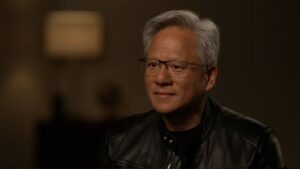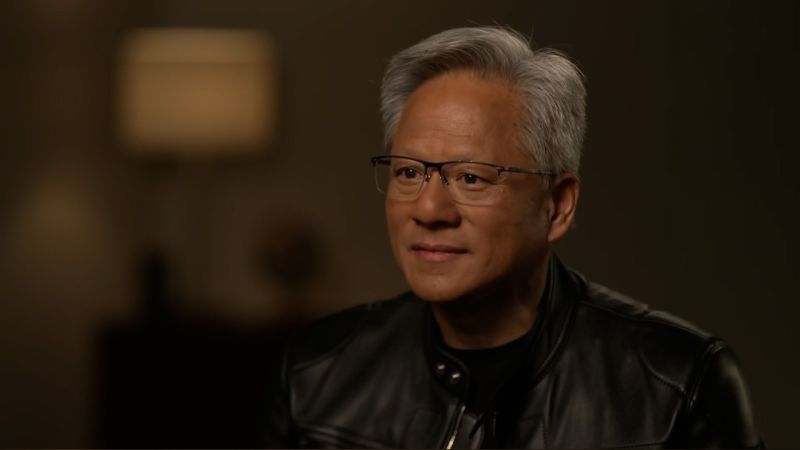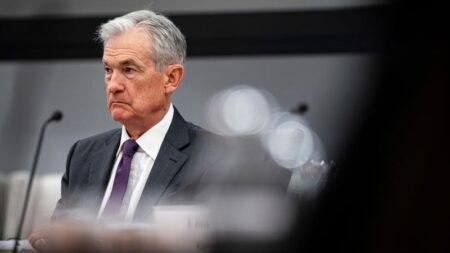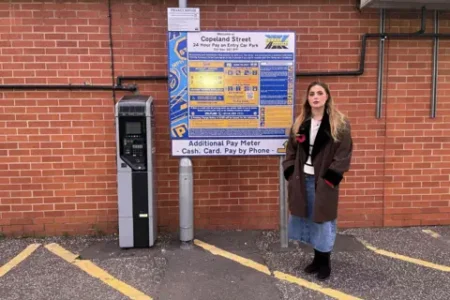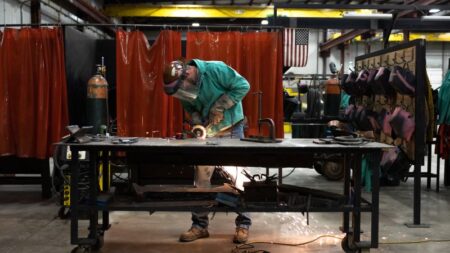In a recent dialogue regarding the transformative impact of artificial intelligence (AI) on productivity and employment, Jensen Huang, the CEO of Nvidia, conveyed a cautious optimism about AI’s potential benefits juxtaposed with real concerns surrounding job security. Coming from the world’s leading chipmaker, whose technology fuels many AI initiatives, Huang highlighted the pivotal role of innovation in shaping the future landscape of work. His remarks were in response to discussions initiated by Dario Amodei, the CEO of Anthropic, who has expressed concerning predictions about AI-induced unemployment.
During an interview with CNN’s Fareed Zakaria, Huang remarked, “If the world runs out of ideas, then productivity gains translate to job loss.” This assertion underscores a critical perspective: while AI can drive efficiency and productivity, the absence of continuous innovation may conversely lead to reduced job opportunities. According to Huang, it is crucial for businesses to generate new ideas and ambitions to ensure that productivity translates into new roles rather than a decline in employment.
Huang’s sentiments echoed the warnings issued by Amodei, who forecasted severe disruptions in the job market, suggesting that up to half of entry-level, white-collar positions could be at risk. In a statement made to Axios, Amodei projected that unemployment rates could surge to as high as 20% within the next five years if companies do not adapt to the rapidly evolving technological landscape.
Furthermore, research highlights growing worries about the effects of AI on employment. A 2024 survey conducted by Adecco Group revealed that approximately 41% of CEOs believe AI would lead to a reduction in the workforce across thousands of organizations in the coming years. Additionally, an earlier report from the World Economic Forum indicated a similar trend, with a significant number of employers anticipating workforce downsizing by 2030 due to automation driven by AI technologies. Huang, however, maintains a level of hope that while some jobs will inevitably disappear, many new opportunities will arise as a result of the productivity boosts engendered by AI.
He stated, “Everybody’s jobs will be affected. Some jobs will be lost. Many jobs will be created, and what I hope is that the productivity gains that we see in all the industries will lift society.” This acknowledgment of the dual-edged nature of AI’s impact emphasizes the need for proactive strategies in workforce planning and education.
As Nvidia continues to play a critical role in this technological revolution, Huang defended AI’s development, reflecting on historical trends where technology has led to increases in both productivity and employment. He noted that advancements in technology throughout history have consistently resulted in a flourishing plethora of new ideas and have improved societal conditions. In terms of AI’s immediate influence, he cited that more than half of large companies in the United States are planning to automate various tasks historically performed by employees, as indicated by a 2024 study conducted by Duke University in collaboration with the Federal Reserve Banks of Atlanta and Richmond.
Huang also pointed out that the roles within companies, including his own, are evolving due to the advent of AI. He asserted, “even my job has changed as a result of the AI revolution, but I’m still doing my job.” This statement encapsulates the sentiment shared among many professionals today, where adaptation becomes essential in the face of technological evolution.
AI has also begun to infiltrate creative industries. Numerous companies are employing AI tools such as ChatGPT for tasks ranging from creating job postings to drafting press releases, illustrating the diverse applications of these advanced technologies.
Concluding his insights, Huang characterized AI as a powerful equalizing force in today’s technological landscape. “AI is the greatest technology equalizer we’ve ever seen,” he proclaimed, reinforcing the notion that AI can empower individuals—regardless of their technological expertise.
For those interested in further insights from this interview with Jensen Huang, it can be viewed on CNN’s “Fareed Zakaria GPS,” scheduled for Sunday at 10 a.m. ET/PT, offering a more comprehensive understanding of AI’s implications on the future of work and productivity. As this discourse unfolds, it remains critical to navigate the dual aspects of AI’s promise and potential peril effectively, ensuring that society harnesses its benefits while mitigating the threats to employment and innovation.

